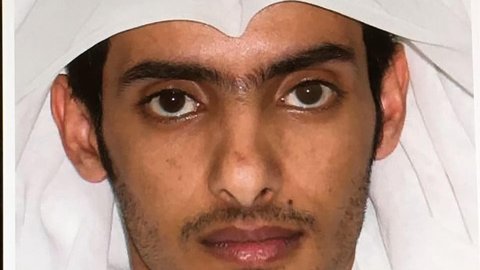
A security expert is calling for more scrutiny of foreign students coming here to study.
It follows the gunning down of a former New Zealand student by police in Saudi Arabia.
They say Taie bin Salem bin Yaslam al-Saya’ari planned an attack last year at one of Islam’s holiest sites.
After the shoot-out over the weekend they found two explosive belts, two machine guns, a home-made grenade and basins filled with chemicals.
Strategic analyst Paul Buchanan told Newstalk ZB’s Tim Dower it was inevitable something like this would happen.
Buchanan believed Taie bin Salem bin Yaslam al-Saya’ari was studying at the University of Auckland.
A university spokesman confirmed Taie bin Salem bin Yaslam al-Saya’ari had done some study in New Zealand in 2008 and 2009.
“He took part in the English Language Preparation programme at the English Language Academy in Auckland from mid-2008 to mid-2009, but did not progress into further study at the University.”
Immigration New Zealand Area Manager Darren Calder said Al-Saya’ari first arrived in New Zealand in July 2008 and held a series of student visas before leaving New Zealand in November 2013.
“For legal and privacy reasons INZ is unable to make any further comment,” he said.
Buchanan said there’s no security vetting of students who come to schools or universities here from Saudi Arabia, or other hotbeds of extremism such as Pakistan.
In fact, Buchanan said there were favourable student visa schemes for both these countries signed during the fifth Labour government and which continue to this day.
Buchanan said it was possible some might be dangerous and might hone their skills in our universities, particularly in the hard sciences.
He added we may see more of this.
After the September 11, 2001, attacks there was a serious clampdown on student visa entry into the United States and UK, so other English speaking countries became attractive to students from the Middle East, particularly those countries with a good academic reputation such as New Zealand.
Buchanan said the fifth Labour government jumped at the opportunity to welcome such students into the country, but without any security vetting.
He described that as naive, given the level of corruption in places like Saudi Arabia and Pakistan.
Buchanan said 90 to 95 per cent of students coming from the Middle East were legitimately interested in getting a degree, and some are the idle children of the Saudi Arabian rich sent here because they’re pretty useless and their parents want to get rid of them for a while.
“That doesn’t make them any less dangerous should they get radicalised, but at least they’re not honing their skills getting PhDs in chemistry or a Masters in Engineering.
“However, some of them may have a specific design in mind, and those are the ones we should be worrying about.”
When he worked at Auckland University, Buchanan said he was told the university was not in the business of security vetting foreign students.
When he asked who did, he was told no one, not the police, not immigration and not the SIS. He believes that is an invitation for trouble.
He believed the SIS in particular should approach partner security agencies to vet students, even if that means reducing the numbers allowed here.
“We should not risk our national security and our reputation, just for some foreign student fees.
That unfortunately is the reverse of the logic at play now. Money talks much louder than security concerns.”
Call to vet foreign students
